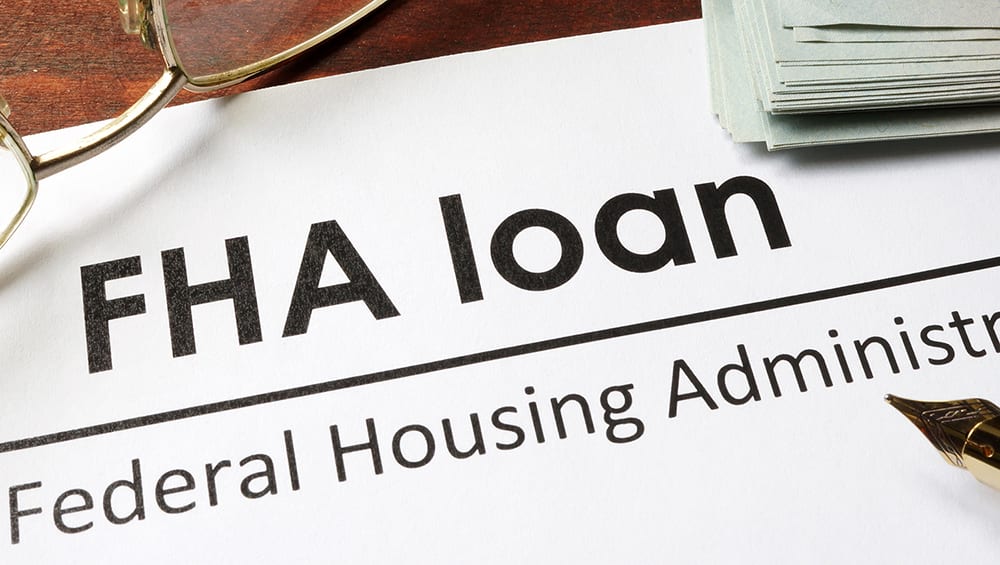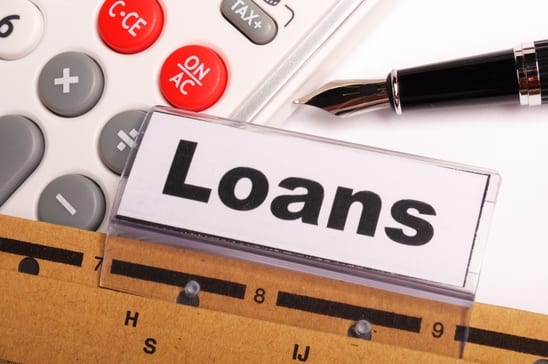
Time's up
 If you are considering purchasing a home, you may wonder what your financing options are. While there are many mortgage options available, some of the most common loan types are conventional, FHA, VA, USDA, and Jumbo loans. Over the next several weeks, we will answer the top 5 questions about the top 5 types of home loans. This week, we will discuss FHA Loans.
If you are considering purchasing a home, you may wonder what your financing options are. While there are many mortgage options available, some of the most common loan types are conventional, FHA, VA, USDA, and Jumbo loans. Over the next several weeks, we will answer the top 5 questions about the top 5 types of home loans. This week, we will discuss FHA Loans.
FHA Loans
An FHA Loan is a type of government-insured loan offered by the Federal Housing Administration (FHA). Rather than lending money directly to home buyers, the FHA insures lenders against losses that may occur in the event that the borrower defaults on the loan. This allows lenders to offer these loans with less strict requirements than conventional or other home loans.
If you are considering an FHA loan for your home purchase, read on to learn the answers to some of the most common questions home buyers have about FHA Loans.
Anyone who does not already have an FHA loan is eligible to use this program. FHA loans are popular with low-income and first-time home buyers, due to the less stringent requirements. They have lower down payment requirements and tend toave lower credit score requirements.
The minimum down payment amount for an FHA loan is 3.5%. This is much lower than the down payment amount for a conventional loan, which is normally 20%. Additionally, FHA loans allow for down payment assistance provided as a gift by a family member, employer, or charitable organization, which other loan programs do not allow.
The credit score requirements for an FHA loan will depend on your lender. However, if you have no credit history or have just begun your credit history, an FHA loan will allow you to add a family member as a co-signer on your loan.
If you opt for an FHA loan, you will be required to pay a Mortgage Insurance Premium (MIP) in addition to your monthly mortgage payments. Mortgage insurance protects your lender from losses in the event that you default on your mortgage.
If you had a foreclosure or deed-in-lieu of a foreclosure, you may not be eligible for an FHA loan for three years after the date the title was transferred from you. However, if the circumstances of the foreclosure were out of your control, your lender may be able to grant an exception. For more information about how a foreclosure may affect your eligibility for an FHA loan, click here.
If you are still paying on a Chapter 13 bankruptcy, and your payments have been satisfactorily made and verified for at least one year, you may qualify for an FHA loan. You will need to provide written explanation of the circumstances of the bankruptcy, have re-established good credit, have stable employment, and qualify financially for the loan. If you or your spouse filed for Chapter 7 bankruptcy, at least two years must have passed since the bankruptcy discharge date. As with Chapter 13 bankruptcy, you will need to provide written explanation of the circumstances of the bankruptcy, have re-established good credit, have stable employment, and qualify financially for the loan.
An FHA loan can be a great financing option for many home buyers. If you have more questions about FHA loans, contact one of our licensed Mortgage Loan Originators. If you are ready to begin the home buying process, click here to get started!
Some interesting news broke last Thursday. President Barack Obama announced plans for the FHA (Federal Housing Administration) to take steps to reduce the annual insurance premium for new borrowers. This will potentially drastically change the way upcoming years of home buying looks like. The plan is estimated to be enacted on January 26th, 2015. This is one way in which the White House is attempting to establish a firm footing in the area of housing (in response to the housing crisis).
With the new reduction plan, one can expect the following:
Housing and Urban Development Secretary Julián Castro stated the following in regard to the policy adjustment:
“This action will make homeownership more affordable for over 2 million Americans in the next three years. By bringing our premiums down, we’re helping folks lift themselves up so they can open new doors of opportunity and strengthen their financial futures.”
It shall be interesting to see where this decision takes the housing industry in the upcoming years. Most certainly, it will make a change in the dynamics of the process and hopefully make buying a home easier.
Read the official White House press release regarding this matter here.
If you are looking to purchase a home or are looking for more information on these FHA changes, click here to contact one of our Licensed Mortgage Loan Originators today.

Government Insured
Conventional loans are not insured or guaranteed by the federal government. This mortgage type adheres to the guidelines set by Fannie Mae and Freddie Mac.
FHA loan is one of several government-insured/backed loans.
Credit Score
Having a good credit score is important for both loan types. Lenders are sometimes less stringent with your credit for FHA loans. Regardless of your actual credit, lenders typically require a credit score of at least 620 for qualification for all loans.
Down Payment
If you get a FHA loan there is a 3.5% minimum down payment requirement. These funds may be gifted from a family member of borrowed through a secured loan. The minimum down payment for Conventional financing is 3% but this must be from the Borrower’s own savings. This is one of the key differences between the mortgages that make people consider an FHA loan over a conventional.
Fixed/ Adjustable Rates
Both Conventional and FHA loans offer a wide variety of Fixed and Adjustable Rate Mortgages. Please consult our mortgage professionals to ascertain which is best suited for your needs.
Mortgage Insurance Premium
FHA financing requires the borrower to pay both an upfront mortgage insurance premium, which may be financed, and monthly mortgage insurance premiums, which are escrowed with the principle and interest payments.
If your down payment is equal to or greater than 20% of the sales price, you will not be required to pay mortgage insurance for Conventional financing. For down payments less than 20% , the amount of mortgage insurance varies with the amount of down payment. The mortgage premiums may, under certain circumstances, be financed in the loan. The premium may be paid monthly or in a lump sum at the time of closing. Please consult our mortgage professionals to ascertain which is best suited for your needs.
We hope this article will help you understand the differences between these two loan types. Remember, it is always best to go over your mortgage options with your Loan Originator.
If you are interested in learning more about each home loan or starting the mortgage process, please click here to talk to a Licensed Mortgage Loan Originator.

History
The FHA (Federal Housing Administration) home loan is one of several government-insured loans. It has been offered by the Federal Housing Administration since 1934 according to HUD (U.S. Department of Housing and Urban Development). This loan type has helped over 40 million families in America purchase a home.
Features
The FHA doesn’t lend money directly to home buyers; they insure lenders against losses that may occur from client default. Because of this, lenders have less strict requirements for borrowers.
One of the features borrowers enjoy the most is the low minimum down payment. There is a 3.5% minimum (check with your mortgage company for an exact percentage), which is a lot less than the requirements for a conventional loan. Additionally, your closing costs may be lower than a standard loan.
Typically, a borrower needs a credit score of at least 620 in order to qualify for this loan. With FHA mortgages, a mortgage insurance premium will be required in addition to your monthly payments. Mortgage insurance is implemented to help lenders protect their interest when allowing borrowers to secure a loan with little cash for a down payment.
With a FHA loan you have the option to get 30, 25, 20, and 15-year terms with fixed rates only. Also, you can pay your mortgage down at any time without getting pre-payment penalties (always check with your Loan Officer for specific guidelines).
Getting the Loan
If you have any questions regarding FHA loans, or if you would like to see if you prequalify, contact one of our licensed Mortgage Loan Originators today!